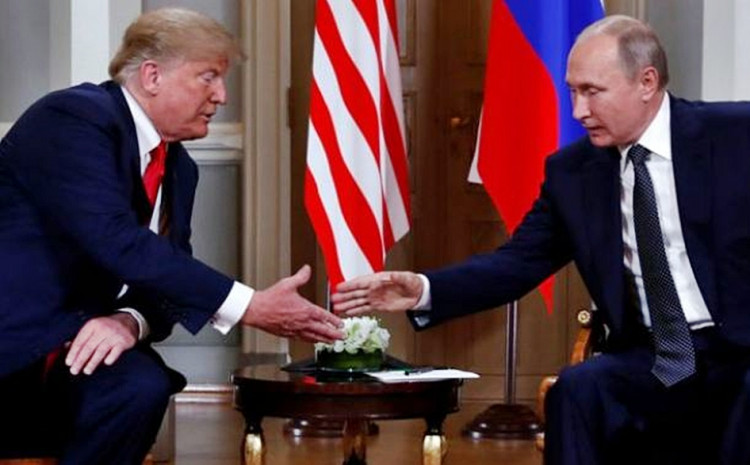President Donald Trump reignited tensions at the Group of Seven summit in Canada on Monday by urging the readmission of Russia into the group, drawing swift praise from the Kremlin and raising fresh divisions among Western allies. The G7 expelled Moscow in 2014 following its annexation of Crimea.
Speaking alongside Canadian Prime Minister Mark Carney, Trump reiterated his belief that excluding Russia from the G8 was a "big mistake," saying, "You wouldn't have that war. You know you have your enemy at the table, I don't even consider, he wasn't really an enemy at that time."
The Kremlin responded favorably to Trump's remarks. "We agree with President Trump: it was a big mistake then to exclude Russia from the G8 format," Kremlin spokesman Dmitry Peskov told reporters Tuesday. However, he downplayed the G7's present-day relevance, stating, "The G7 looks dull and rather useless."
Trump's call comes amid criticism from European leaders pushing for tighter sanctions on Moscow. European Commission President Ursula von der Leyen said the EU would urge G7 members to lower the cap on Russian oil prices from $60 to $45 per barrel. "To achieve peace through strength we must put more pressure on Russia to secure a real ceasefire," she said.
Russia's removal from the G8 came during the Obama administration, and Trump explicitly blamed the former U.S. president as well as ex-Canadian Prime Minister Justin Trudeau. "Obama didn't want him, and the head of your country didn't want him," Trump said, repeating Trudeau's name multiple times and calling the decision to eject Putin "a mistake."
Trump also voiced skepticism over the economic burden of sanctions. Sanctions "cost U.S. a lot of money. It costs the US a lot of money. You are talking about billions and billions of dollars," he said, signaling a reluctance to escalate punitive measures against Moscow.
Ukrainian President Volodymyr Zelenskyy, who is scheduled to meet Trump at the summit for the first time since April, criticized what he called global complacency. "Russia spits in the face of everything the international community is trying to do to stop this war," he said, adding that "this war could have ended long ago if the world had reacted to Russia in a principled way."
Zelenskyy said Ukraine had refrained from attacking Russian energy infrastructure at the request of the U.S., unlike recent Russian assaults that targeted Ukrainian facilities.
Russia's war in Ukraine continues to weigh heavily on the G7's agenda. The EU is preparing its 18th round of sanctions, aimed at further choking off Russia's oil revenues. According to von der Leyen, combined EU and G7 measures have already reduced Moscow's oil and gas revenues by nearly 80% since the invasion began.





